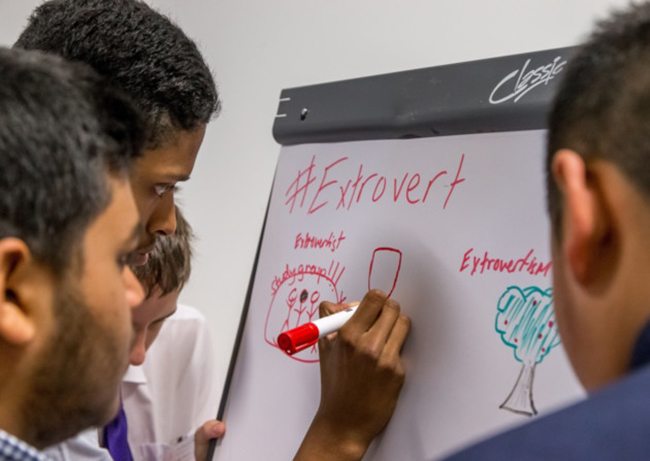Primary schools in England could reopen to some year groups from 1 June “at the earliest”, says Boris Johnson.
The prime minister said a phased return to school would begin with pupils in Reception, Year 1 and Year 6, if infection rates and the government’s other tests at the time allow it.
For most pupils, schools have been closed since 20 March.
But the National Education Union said the reopening plan was “nothing short of reckless”.
“At the earliest by June 1, after half term, we believe we may be in a position to begin the phased reopening of shops and to get primary pupils back into schools, in stages,” said Mr Johnson, in an address to the nation.
Secondary schools are likely to stay closed until September.
But the prime minister said there was an “ambition” that secondary pupils facing exams next year – such as Years 10 and 12 – would get some time in school before the summer holidays.
These were the “first careful steps” and the timetable for reopening would be delayed if necessary, he said.
“If we can’t do it by those dates, and if the alert level won’t allow it, we will simply wait and go on until we have got it right,” said Mr Johnson.
“If there are problems we will not hesitate to put on the brakes,” said the prime minister.
Mr Johnson set out how schools in England would begin to reopen, beyond the children of key workers and vulnerable children who are currently attending.
The oldest and some of the youngest in primary school would go back first – Year 6 who would soon be moving to secondary school and the Reception class and Year 1.
Head teachers have warned that social distancing would mean schools would not have the capacity to teach all year groups at the same time.
Geoff Barton, leader of the ASCL head teachers’ union, said it was important the reopening date was not “set in stone”, because it was not yet clear how the proposed numbers of pupils could be “safely managed”.
Paul Whiteman, leader of the National Association of Head Teachers, said the government’s announcement had not passed the “confidence test” with parents and teachers.
“It will all be in vain if many parents still decide to keep their children at home,” he warned.
Mary Bousted, co-leader of the National Education Union, rejected the prime minister’s plan, saying infection rates were too high for it to be safe.
A snap poll of the teachers’ union members, carried out after the prime minister’s announcement, found 92% “would not feel safe with the proposed wider opening of schools”.
Parents on the BBC’s Facebook page questioned how practical it would be to apply social distancing with young children.
“Reception and Year 1 will totally understand social distancing, right?” posted Rachel Marshall.
Leona Shergold said: “There is no way of keeping 4-5 year olds two metres apart from their friends.”
Bringing back Year 6 pupils “makes sense”, posted Rachel Burrows. “They could do social distancing.” But she did not think that would work with Reception and Year 1.
In countries which have already begun to reopen schools, such as Denmark, teachers have reported that social distancing can be hard to enforce – and instead have focused on keeping children in small, separate groups and using lots of hand washing.
In Wales, the First Minister Mark Drakeford has already ruled out following the same timetable as England.
“We’re not going to be reopening schools in Wales in the next three weeks, or indeed in June,” he said.
In Scotland, the government has warned that fully reopening primary schools ran the risk of “overwhelming” the NHS.
In Northern Ireland, Education Minister Peter Weir has spoken of a possible phased return of schools in September.


